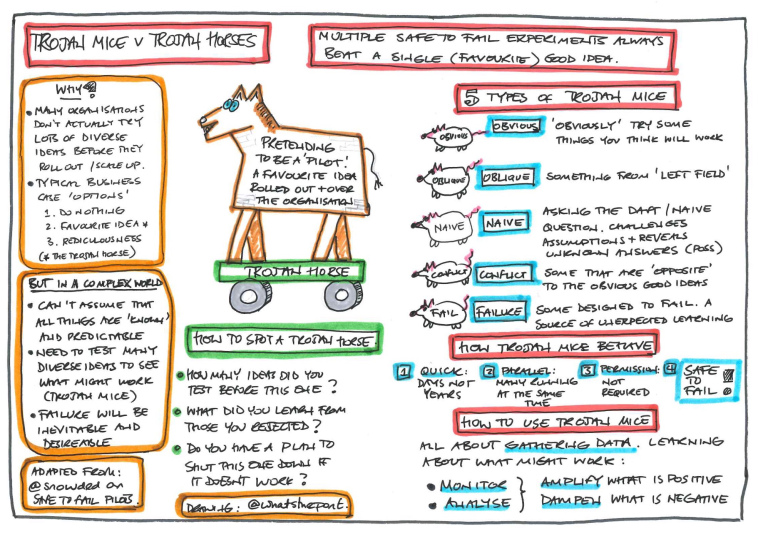I don’t buy into the idea that humans intrinsically hate change. I just think that by the time we’re in our 30s or 40s, lots of our experience of change – particularly in the workplace – has been more negative than positive. Instinctively rejecting it is a learned response – Tom Cheesewright
People , we hear, are tired of change. They have change fatigue.
We are sometimes told that people will resist our ‘change efforts’ or even need to be assessed for their ‘change readiness’. Change readiness, in case you’ve not had the pleasure, is the “ability to continuously initiate and respond to change in ways that create advantage, minimize risk, and sustain performance.”
Failing your change readiness assessment could be seriously career threatening.
Despite this so-called change resistance all the evidence shows that people want change on a scale like never seen before , both in our wider society and the workplace.
What is to blame for this apparent ‘change paradox’?
My contention is that there are some similarities with how change – or rather the lack of meaningful change that make people’s lives better or easier – manifests itself in our communities and in our offices.
Simply put, people’s experience of the delivery of change is often far from what they have been promised. This is put even more simply by Peter Vander Auwera – “people don’t resist change, they resist bullshit”.
The Big Problem With Change Programmes
The birth of the management change movement dates back to the 1960s and 1970s when big consultancy began to see a vast new market – convincing organisations of the benefits of ‘transformation’.
The philosophy proposed that there’s always a better version of you out there in the future and by following a series of best practices, toolkits and templates that version of you can be easily realised.
However change is not just about going from one point to another, reaching a mythical ‘to be’ state and stopping there. The most important thing is what takes place from point A to whatever happens next – and that will almost never be what you predicted or what it says on a Gantt chart. None of us can predict the future and nobody can possibly know the butterfly effect when you begin to change things.
That’s why large-scale transformations become too big to fail – resulting in a ‘wall of silence’ when objectives don’t get met. They simply cannot deliver on what was promised. So what’s the point of doing them?
We Need Trojan Mice, Not Trojan Horses

Chris Bolton has written an excellent series of posts (links in here) on the concept of Trojan Mice. Trojan Mice is a phrase Euan Semple used in his blog about ten ways to create knowledge ecology . “Unleash Trojan Mice. Don’t do big things or spend loads of money. Set small, nimble things running and see where they head.”
For Trojan Mice think of small safe to fail tests and learning exercises rather than big change. Trojan Mice are small, well focused changes that address a problem but are introduced in an inconspicuous way. without the fanfare of transformation. They are small enough to be understood and owned by all concerned.
This is grassroots change rather than top down. And because the change is being made by people close to the problem they don’t resist it – they lead it.
Many organisations don’t like this approach though because it is , by definition, unpredictable. Trojan Mice will eventually deliver rewards; but you may not get what you were expecting.
I’d argue that big change never gives you what you were expecting anyway – so you may as well embrace a bit of uncertainty and release the mice. It’ll cost you a lot less money – that’s for sure.
Towards A Community For Change
Change does not always happen where, when or how we want. Organisations are just collections of people but we often forget that and make it more complicated than it needs to be.
I don’t know how change happens where you live but where I am people just connect with each other over shared interests and they try things out. There aren’t any spreadsheets that I know of.
The problem with employing lots of Change and Transformation people is that they often start changing and transforming lots of things that never asked or needed to be changed or transformed in the first place.
Grass-roots change presents senior managers with a paradox because it means directing an approach to change without insisting on or even approving specific solutions.
However , if we are to bridge the gap between the appetite for change and the experience of change delivery, we need fundamentally new approaches.
People hate change?
No, they don’t. They hate to get changed by other people.

Leave a comment